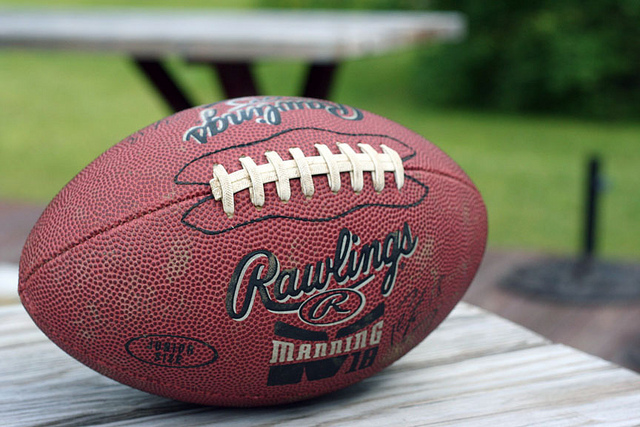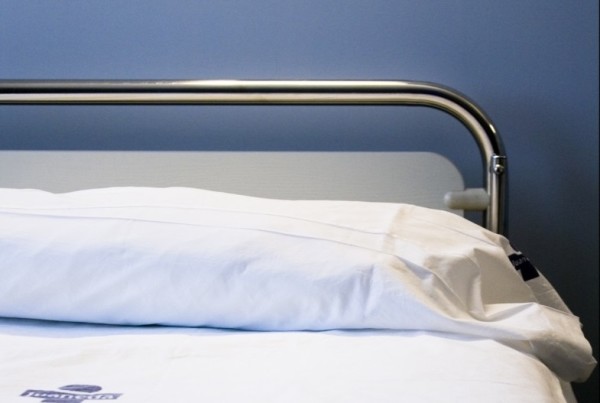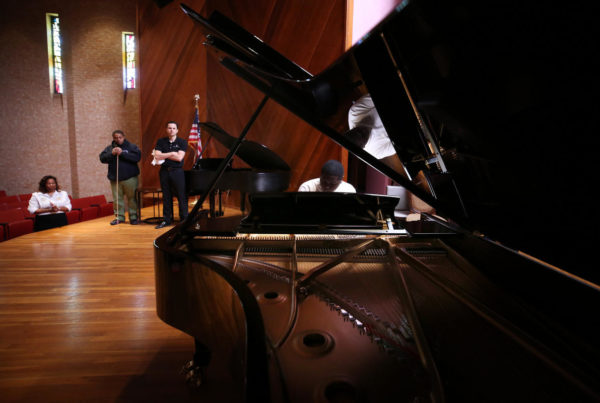Our stereotypes of male athletes often go something like this; strong, dumb, macho. There’s even a phrase for the type of chauvinistic conversation that too often goes on behind the scenes on sports teams – locker room talk.
These stereotypes are not without some supporting evidence. Take, as just one example, the widespread and deplorable sexual assault scandal that continues to haunt the Baylor University football organization.
A program making its way through east Texas right now is aimed at redefining what it means to be a male athlete in an effort to stop that sort of behavior before it starts. An organization called Men Can Stop Rape is educating high school athletes on how to stop sexual assault on their teams and among their friends.
“It’s really a conversation. It’s interactive. It’s about how they can be strong without being violent,” says Pat McGann, director of strategy and planning with Men Can Stop Rape.
McGann has been putting on clinics this past week for teams in Smith County. He says the clinics focus on teaching what he refers to as “healthy masculinity.”
“Healthy masculinity connects with being your authentic self and not feeling like you have to live up to those pressures and expectations that sometimes go along with what it means to be a man– especially those pressures and expectations that are harmful in many ways,” he says.
This message contrasts with the violent and aggressive language often used by coaches in relation to sports games, as well as with the group think that is often encouraged in locker rooms.
“I think that’s why it was so important to have the coaches there. It wasn’t just the student athletes, but it was also their coaches,” McGann says. “It’s really about strength of character as well. And I think coaches get that.”
But getting through to students, not coaches, is the ultimate goal. McGann says high school athletes are not as hard to reach as people might think.
“I think there’s plenty of young men out there that recognize the value and importance of that strength of character and really kind of want that. I think we saw that yesterday in some of the responses. They were very participatory,” he says.
The program also focused on bystander intervention, or stopping sexual assault when you are not directly involved. McGann says he and his facilitators presented the athletes with situations or scenarios that might happen in the locker room or with a young woman and then asked the athletes to figure out healthy responses.
“I think healthy masculinity is the approach that registers with them, that resonates,” McGann says.
The 1 in 3 Foundation, started by Tyler sports reporter Maya Bethany, brought Men Can Stop Rape to east Texas to put on the clinics.
Written by Kate Groetzinger.
















